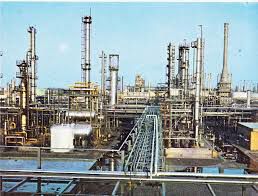1954: THE BRITISH CONSERVATIVE GOVERNMENT AND THE ENDING OF THE NATIONALISATION OF THE ANGLO-IRANIAN OIL COMPANY’S CRISIS.
TheObserverwrote, ‘there need no longer be a Persian problem,’¹ welcoming the operation of 19thAugust 1953. On 5thMay 1953, Selwyn Lloyd had written to Churchill saying, ‘the department thought it unwise to give him [Musaddiq] another opportunity, particularly now that the Americans and we agreed that Musaddiq is hopeless.’²
The new government of General Zahedi, soon after coming into office, spoke of Iran’s deep economic problem, and was determined to reach a settlement in the oil issue. In early October 1953, via Washington, contacts between the British Government and the new Iranian Government were re-established. This process went so fast that by 20th October the Foreign Secretary, Anthony Eden, announced in the House of Commons that the British Government,
wish sincerely to extend once more the hand of friendship. The Persian Government are aware that we are ready to resume diplomatic relations. If this can be done, it will then be easier for us to discuss together the complex problem of Persian oil.³
In reply to the British Foreign Secretary’s announcement, the Iranian Ambassador in Washington on 31st October said,
The Persian Government would like to presume that there is no major difference between the Persian and British governments which could not achieve a solution. The dispute was only with the AIOC.4
Contacts between London and Teheran from then onwards continued, which led to the official announcement in Teheran, on 5th December 1952, of the resumption of diplomatic relations. On 21st December the new British Charge d’Affaires arrived in Teheran, and the British Embassy was reopened. There was a rise of 10/- in the value of the Anglo-Iranian Oil Company’s shares to 142/- (in 1951 they had fallen below 90/-) and by the start of 1954 they were back at 190/-. Following several trips to Iran by Herbert Hoover, special oil advisor to the US Secretary of State, John Foster Dulles, in order to lay the groundwork for negotiations to settle the oil dispute between Britain and Iran, on 1st February 1954 an announcement by the AIOC was made. The Anglo-Iranian Oil Company said that it was meeting with seven other large oil companies with interests in the Middle East to discuss ways of resolving the difficulties which prevented Iranian oil from returning to the world markets.
Later in the month, a mission of twenty technical experts headed by a one-time Anglo-Iranian Oil Company Fields Manager, representing the eight interested companies, flew to Iran to inspect the refinery at Abadan. This was described as a fact-finding visit, to estimate the cost of putting the refinery into full working order again. 5
In the beginning of March 1954, after a positive report by the mission which went to Iran in February, the oil cartel heads met in London, the oil consortium was financially established, a plan was drawn up, and a representative mission left on 10th April for Teheran to conduct negotiations. The mission’s members were J.H. Loudon of Shell, H.E. Snow of the Anglo-Iranian Oil Company and Orville Harden of Standard of New Jersey, respectively Dutch, British and American. When Anthony Eden on 12th April was announcing in the House of Commons the news of the mission to Teheran, Herbert Morrison, the Secretary of State for Foreign Affairs in the Labour administration, took the opportunity to declare,
It is better that these things be settled in due course by friendly discussion than that they should have been sought to be settled by means of war and force. If we had sought to settle them by force the statement would not have been possible today.6
- The Observer, 8th November 1953, in EVAYAT, op. cit., p. 271.
- PRO, London, FO 800/814, The General Correspondence of the Foreign Office, Selwyn-Lloyd to Churchill on Persian Oil, Confidential, 5th May 1953.
- L. P. ELWELL-SUTTON, op. cit., p. 314.
- Ibid.
- J. MARLOW, The Persian Gulf in the Twentieth Century, (London: The Cresset Press, 1962), Chapters 10, 12.
- Parliamentary Debate, Commons, Vol. 526, Col. 796, 12th April 1954, in ENAYAT, op. cit., p. 177.



